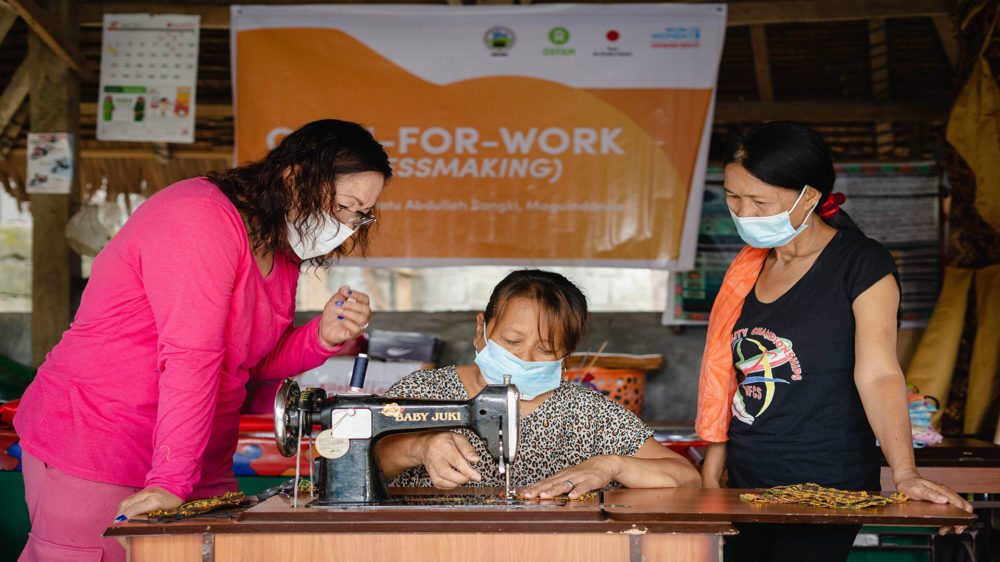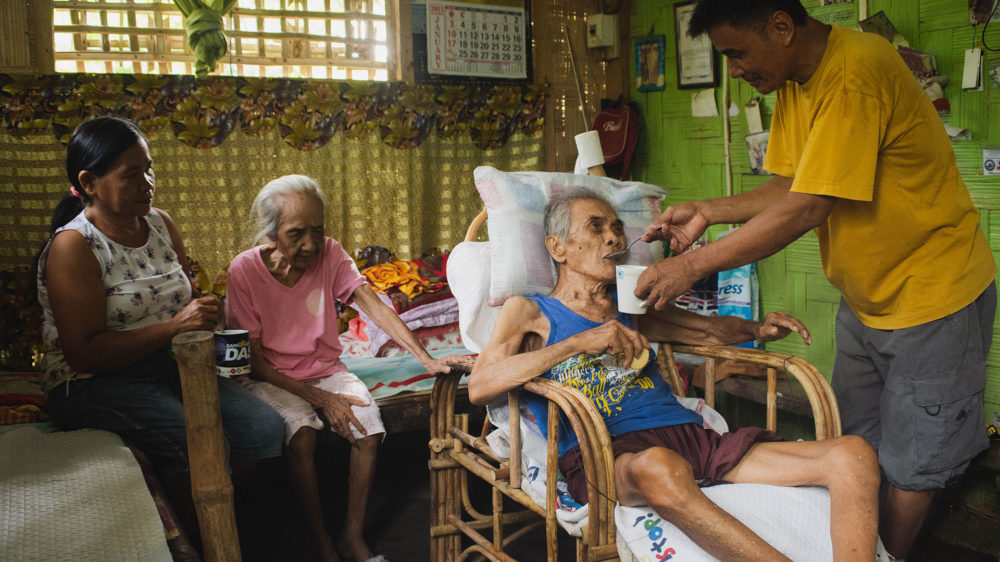
Blog post by April Ann Abello-Bulanadi
Senior Officer for Media and Digital Influencing
More from April Ann Abello-Bulanadi
With or without emergencies, Noraida Abo seldom stays at the office of the United Youth of the Philippines-Women (UnYPhil-Women), a local women’s rights organization she currently heads in the southern region of the Philippines. She prefers the outdoors where she experiences first hand the complex realities of the Bangsamoro people in Mindanao.
The Bangsamoro have been experiencing armed conflict for more than five decades now. Noraida personally witnessed this throughout her 48 years of existence because her own father was part of the panel that led the peace negotiations with the Philippine government.
Her father recently passed away two months after a vote that ratified the creation of the Bangsamoro Automous Region of Muslim Mindanao (BARRM), a new southern region that gives Muslim minority wider powers and greater resources, and is aimed to put an end to the decades old conflict.
Like her father, Noraida dreams of lasting peace and sustainable development for the Bangsamoro.
Noraida’s first exposure to humanitarian work started in 2000. She volunteered to provide psychosocial support to those displaced by the armed conflict with a local organization in Maguindanao. This is where she learned that women and children are disproportionately vulnerable to gender-based violence especially in times of disasters.
“We noticed that the issues of women and children, particularly gender-based violence, were not properly documented during conflict. We learned about it during the psychosocial interventions we conducted. This inspired us to start an organization that focuses on women,” Noraida said.
Moved by this experience, she co-founded four years later the first women’s rights organization in Maguindanao called UnYPhil-Women.
For more than 15 years, the organization has provided assistance to women experiencing different forms of violence. Noraida and her team are not only documenting cases of human rights violations, they are also enhancing participatory processes so women have the spaces to voice out their issues. They have education programs where women and children can learn about their rights. UnYPhil-Women also provide them with livelihood support.
“My father would always remind me to give to people what is rightfully due to them. He also used to tell me to be careful not to inflict harm and cause rift in the communities while giving humanitarian aid.”
Recognizing the important role of women in the peace process, Noraida’s organization also implemented peace advocacy programs with women at the forefront.
In 2014, international development agency Oxfam first partnered with UniYPhil-Women for a peace program that contributes to women’s inclusion and participation in the Bangsamoro peace process.
Since then, Noraida’s organization has integrated women and peace at the heart of their work as they responded to various disasters from armed conflicts to typhoons in Mindanao.
The Marawi crisis in 2017 is among Noraida’s unforgettable humanitarian response experiences. The crisis destroyed homes, shattered lives, and displaced hundreds of thousands. A group of fighters linked to a terror group held the capital city of Marawi hostage that lasted for more than five months.
“We were among those who immediately responded after the siege. We went to nearby Iligan City three days after the siege, and provided relief goods and psychosocial support to the evacuees,” she said.
Two years after the Marawi siege, Noraida’s team continues to provide help where it is most needed. Sometimes, reaching remote and high security risk areas that only few organizations have attempted to enter.
“Security is one of the challenges we face daily, especially that we work with interior communities located in high-security risk areas,” she added.
Currently, her organization is contributing to efforts that aim to reduce the incidence of child marriage in the province of Maguindanao.
Her organization is also providing life-saving aid such as cash-for-food, water, sanitation and hygiene to people displaced by the decades-old cyclical armed conflict in Maguindanao. The project is being implemented with the support of Oxfam and the European Union Civil Protection and Humanitarian Aid.
“Aid must empower people to stand on their own and not make them dependent on us. This is what I learned from my father,” she added.
It takes different strokes to bring lasting peace and development. And it is never easy in this part of the country that has witnessed five decades of violence and unrest.
One thing is certain though. One woman has taken the challenge—to be the bridge of peace.



